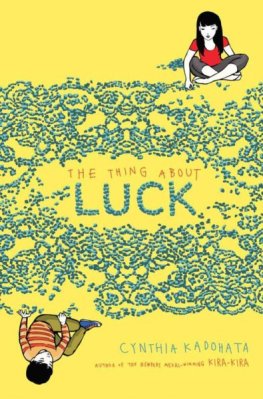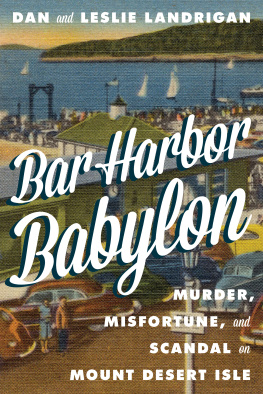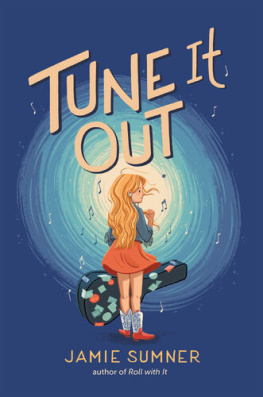Colson Whitehead
Sag Harbor
NOTIONS OF ROLLER-RINK INFINITY
FIRST YOU HAD TO SETTLE THE QUESTION OF OUT. When did you get out? Asking this was showing off, even though anyone you could brag to had received the same gift and had come by it the same way you did. Same sun wrapped in shiny paper, same soft benevolent sky, same gravel road that sooner or later skinned you. It was hard not to believe it belonged to you more than anyone else, made for you and waiting all these years for you to come along. Everyone felt that way. We were grateful just to be standing there in that heat after such a long bleak year in the city. When did you get out? was the sound of our trap biting shut; we took the bait year after year, pure pinned joy in the town of Sag Harbor.
Then there was the next out: How long are you out for? and the competition had begun. The magic answer was Through Labor Day or The Whole Summer. Anything less was to signal misfortune. Out for a weekend at the start of the season, to open up the house, sweep cracks, that was okay. But only coming out for a month? A week? What was wrong, were you having financial difficulties? Everyone had financial difficulties, sure, but to let it interfere with Sag, your shit was seriously amiss. Out for a week, a month, and you were allowing yourself to be cheated by life. Ask, How long are you out for? and a cloud wiped the sun. The question trailed a whiff of autumn. All answers contemplated the end, the death of summer at its very beginning. Still waiting for the bay to warm up so you could go for a swim and already picturing it frozen over. Labor Day suddenly not so far off at all.
The final out was one-half information-gathering and one-half prayer: Who else is out? The season had begun, we were proof of it, instrument of it, but things couldn't really get started until all the players took their marks, bounding down driveways, all gimme-fives. The others were necessary, and we needed word. The person standing before you in pleated salmon shorts might say, I talked to him on Wednesday and he said they were coming out. They were always the first ones out, never missed June like their lives depended on it. (This was true.) Someone might offer, Their lawn was cut. A cut lawn was an undeniable omen of impending habitation, today or tomorrow. Saw a car in their driveway. Even better. There was no greater truth than a car in a driveway. A car in the driveway was an invitation to knock on the door and get down to the business of summer. Knock on that door and watch it relent under your knuckles once you were out, the door stayed unlocked until you closed up the house.
Once we're all out, we can begin.
MY NAME IS BEN. In the summer of 1985 I was fifteen years old. My brother, Reggie, was fourteen. As for when we got out, we got out that morning, hour and a half flat, having beat the traffic. Over the course of a summer, you heard a lot of different strategies of how to beat the traffic, or at least slap it around a little. There were those who ditched the office early on Friday afternoon, casually letting their co-workers know the reason for their departure in order to enjoy a little low-pressure envy. Others headed back to the city late Sunday evening, choking every last pulse of joy from the weekend with cocoa-buttered hands. They stopped to grab a bite and watched the slow red surge outside the restaurant window while dragging clam strips through tartar sauce soon, soon, not yet until the coast was clear.
My father's method was easy and brutal hit the road at five in the morning so that we were the only living souls on the Long Island Expressway, making a break for it in the haunted dark. Every so often my mother said, There's no traffic, as if it were a miracle. Well, it wasn't really dark, June sunrises are up and at 'em, but I always remember those drives that way memory has a palette and broad brush. Perhaps I remember it that way because my eyes were closed most of the time. The trick of those early-morning jaunts was to wake up just enough to haul a bag of clothes down to the car, nestle in, and then retreat back into sleep. Any unnecessary movement might exile you from the realm of half asleep and into the bleary half awake, so my brother and I did a zombie march slow and mute until we hit the backseat, where we turned into our separate nooks, sniffing upholstery, butt to butt, more or less looking like a Rorschach test. What do you see in this picture? Two brothers going off in different directions.
We had recently ceased to be twins. We were born ten months apart and until I went to high school we came as a matched set, more Siamese than fraternal or identical, defined by an uncanny inseparability. Joined not at the hip or spleen or nervous system but at that more important place that spot on your self where you meet the world.
There was something in the human DNA that compelled people to say Benji 'n' Reggie, Benji 'n' Reggie in a singsong way, as if we were cartoon characters or mascots of some twenty-five-cent candy.
On the rare occasions we were caught alone, the first thing people asked was Where's Benji? or Where's Reggie? whereupon we delivered a thorough account of our other's whereabouts, quickly including context as if embarrassed to be caught out in the sunlight with only half a shadow: He rode into town. He lost his CAT Diesel Power cap at the beach and went to get a new one at the five-and-ten. And the questioner nodded solemnly: Reggie's love for his CAT Diesel Power cap, fostered by '70s trucker movies, was well-known.
There was summer, and then there was the rest of the time. During the rest of the time, before we were separated, you could find us modeling gear from the Brooks Brothers Young Men's Department smart white Oxford shirts, for example, tucked in during school hours, flapping in soft rebellion when we were home. The elementary school we went to required us to wear jackets and ties, so we did. Our wrists inevitably outran our jacket sleeves despite our mother's attempts at timely hem-jobs. The ties as a species were clip-on, but we had a few that our father tied for us at the beginning of the school year, which we then slid loose and slid tight for the next nine months, knots getting greasier and grubbier as our kiddie fingers oozed into them. We had one blue blazer and one beige corduroy jacket apiece, rotated over gray slacks and khaki pants. I was a little taller, which helped us sort out whose was whose, but not always.
What did we look like, walking down Lexington, across Sixty-second Street, side by side on our way to and from school? I remember one day in the seventh grade when an old white man stopped us on a corner and asked us if we were the sons of a diplomat. Little princes of an African country. The U.N. being half a mile away. Because why else would black people dress like that? Looking up into his mossy teeth, I croaked a tiny No and tugged Reggie into the crosswalk, as my don't-talk-to-strangers/everyone-is-a-child-molester training kicked in. The TV was our babysitter, sure, so finger-wagging movies of the week were our manual on how to deal with strangers. We eagerly riffled through the literature, tsk-tsking and chuckling over tales of neglected white kids gone awry, the sad procession of zaftig and susceptible teenage hitchhikers, the pillpopping honor students turned wildcat over the pressure to succeed. When strangers stopped us on the street asking questions, we knew what to do. Keep walking, brother. What did he look like? Senior partner in the law firm of Cracker, Cracker & Cracker. What did we look like? I don't know, but his question wasn't something we'd ever be asked in Sag Harbor. We fit in there.
Summers we branched out in our measly fashion. Freed from the dress code, what did we do? As fake twins, we couldn't shake our love of the uniform. Each day we wore the same make of shirt, but different colors, different iron-on decals. Every couple of months our mother bought us some clothes at Gimbels security cameras capture her foraging for her cubs, murmuring Two of these, and two of theseand then tossed them into our cage for us to hyena-yip over who got what. Want the maroon terry-cloth shirt? Get to it first or else you'll be wearing the olive one 'til next Christmas. R2-D2 jammies for you, C-3PO for me. You had to work fast. Dibs was all.












